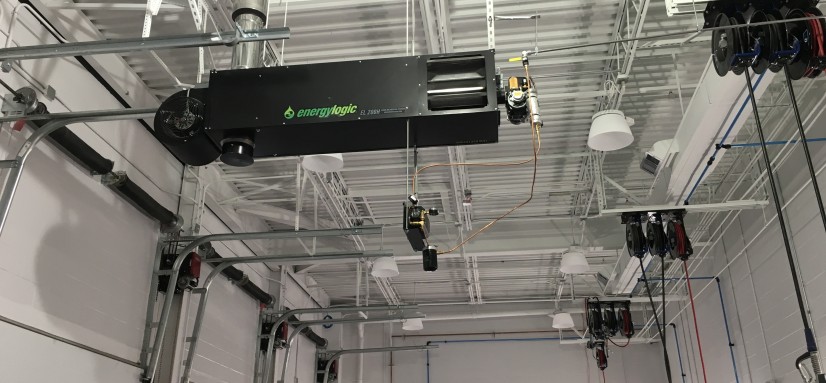19Sep
Blog
10 Waste Oil Benefits You’re Missing Out On.
By EnergyLogic
Oil has the benefit of never wearing out – it can be cleaned and reused many times. In other words – it should be recycled. The process for recycling waste oil includes water extraction, filtering, de-asphalting, and distillation. The oil can then be reused for use in motorized equipment, turned into hydraulic oil, or used to make plastics.
Another way to use waste oil efficiently is as heating fuel. Waste oil heat production can heat water or be a source of warmth in colder months. Waste oil heaters and boilers use waste oil as a fuel source for heat, and they provide quick heat and easy cleanup.
There are also disposal facilities available for unwanted waste oil. These facilities will properly recycle waste oil for other uses – for a price. Depending on the facility, there are options for curbside pickup or drop off. You may want to consider the cost of hauling off your oil vs. burning it in waste oil heater for free. While the heaters may not be free the return on the investment can be astronomical.
Benefits of Waste Oil:
Improper disposal or storage of waste oil can damage human health and the surrounding environment, and waste oil has surprising benefits when recycled or reused. It is not a byproduct that you should mishandle or squandered. There are several benefits to using waste oil or properly disposing of it:
- It’s better for the environment. Recycling or reusing waste oil prevents damage to the environment. Improperly disposing of or wasting oil contaminates soil and water.
- It’s cost-efficient. By reusing waste oil as fuel for waste oil heaters or boilers, business owners can save on – or eliminate– monthly energy and heating bills. Waste oil heaters and boilers not only save money, they end up paying for themselves.
- Waste oil doesn’t expire. Oils can be used countless times. Their only drawback is that they get dirty over time; hence the importance of recycling to clean oil for reuse. Waste oil is a reliable and reusable energy source.
- Waste oil use limits energy consumption. Raw material processing requires the greatest amount of energy expenditure. Recycling used oil limits energy consumption. Minimizing the output of energy by recycling and reusing waste oil is also cost-efficient.
- It helps conserve natural resources. Reusing waste oils reduces the need for mass production of new oil from untouched habitats. By conserving resources, it protects the environment from further harm.
- It keeps waste out of landfills. When waste oils are recycled and reused, they do not end up in landfills, which pollute the surrounding water and land, destroying the environment. Oils should never be used in landfills, especially when waste oil has benefits.
- Waste oil makes efficient heat source. Waste oil can be a fuel source, particularly for heat. By using waste oil heaters, you can use this oil for efficient heat production.
- Waste oil use contributes to jobs. Waste oil can positively impact the unemployment rate by creating more jobs in recycling facilities. When there is a greater demand for waste oil recycling and people use the services regularly, more jobs are created to meet that demand.
- Waste oil isn’t just for motorized equipment. Recycled waste oil can be used to generate electricity. Two gallons of recycled oil can create enough electricity for an average household for nearly 24 hours.
- It contributes to advancements in technology. Waste oil technology is being used in waste oil heaters and boilers. Waste oil creates a need for more technological advancements as people find new ways to use it.
Recycling/reusing your waste oil products is beneficial for the environment and human health. It conserves energy, creates jobs, and serves as a fuel source. Think about how you and your business might benefit from finding ways to reuse waste oil, rather than simply disposing of it.
Source: www.energylogic.com
